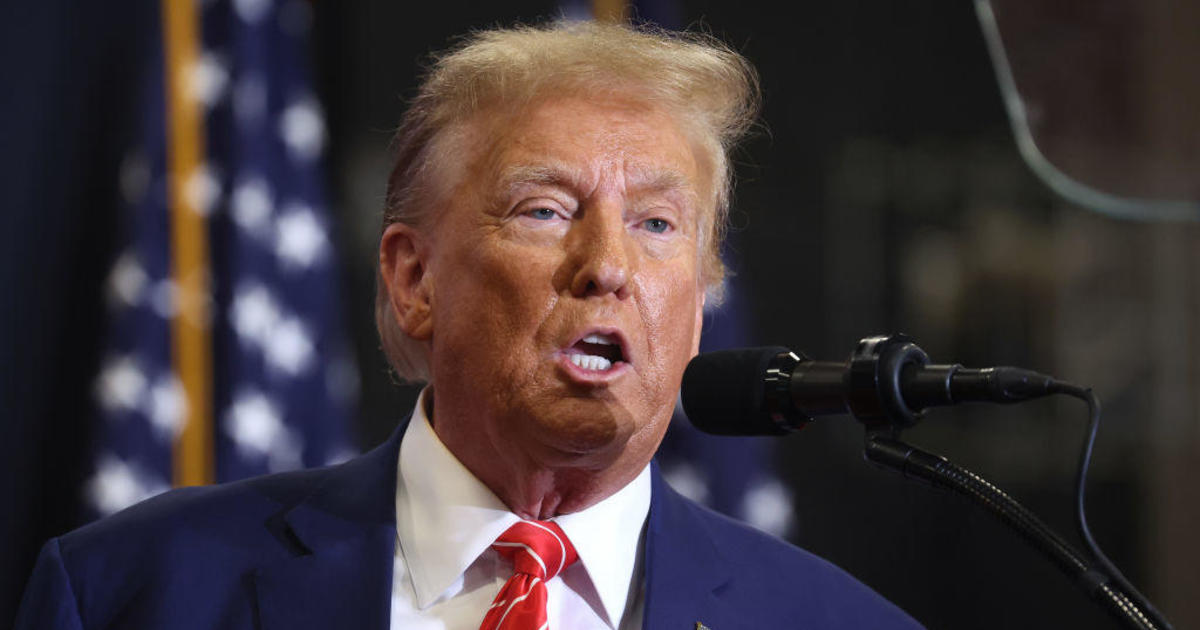In a trio of motions filed Monday, former President Donald Trump asked a Georgia judge to throw out felony racketeering charges against him, saying the criminal election subversion case violated presidential immunity, double jeopardy and due process protections.
Trump has frequently cited presidential immunity in his efforts to thwart criminal and civil cases against him. On Tuesday, he is expected to attend a federal appeals court hearing in Washington, D.C., stemming from a similar presidential immunity claim in a separate criminal case, in which he is also charged for his actions following his 2020 election loss.
One of the filings in Georgia — where he is accused of conspiring with others to illegally have himself declared the state’s winner in 2020 — closely mirrors the presidential immunity claim he’s argued in the D.C. case.
“From 1789 to 2023, no President ever faced criminal prosecution for acts committed while in office. That unbroken historic tradition of presidential immunity is rooted in the separation of powers and the text of the Constitution,” Trump’s attorneys argued in Monday’s filing.
In December, Trump’s attorneys in Washington wrote that “during the 234 years from 1789 to 2023, no current or former president had ever been criminally prosecuted for official acts. That unbroken tradition died this year, and the historical fallout is tremendous.”
Trump has denied the allegations against him, claiming he believes he won the election.
In a separate Georgia motion, Trump also argued that the charges against him in the state violate his constitutional right against double jeopardy, citing his impeachment after the Jan. 6 attack on the U.S. Capitol.
“The indictment must be dismissed because President Trump was impeached, tried by the Senate, and acquitted on articles of impeachment that arise from the same alleged facts and course of conduct as the criminal indictment in this case,” his lawyers wrote.
Trump’s claim to double jeopardy again mirrors his arguments in his appeal of the D.C. case, reflecting his parallel legal strategies in the twin election interference trials.
In a third filing, Trump’s lawyers argue that prosecutors in Fulton County, Georgia, violated his due process and First Amendment rights.
“President Trump did not have fair warning that his alleged conduct, pure political speech and expressive conduct challenging an election, could be criminalized,” Trump’s lawyers wrote.
A spokesperson for Fulton County District Attorney Fani Willis declined to comment.
An attorney for Trump, Steven Sadow, called his motions “meritorious.” He also filed another motion Monday, seeking to compel discovery — the process of turning over evidence to defendants — in the case.
Monday is the deadline for Trump and many of his Fulton County co-defendants to file pretrial motions. Prosecutors have told Judge Scott McAfee they would like the trial to begin in August 2024.
Trump has leaned on the presidential immunity defense for years. In 2019, he sought to stop the Manhattan district attorney subpoena of his tax records, arguing a sitting president was entitled to “absolute immunity from criminal process of any kind.” That case made its way to the Supreme Court, which ruled that sitting presidents were not shielded from state subpoenas.
That case later led to Trump’s first indictment, in March 2023, on New York state felony falsification of business records charges related to a payment to an adult film star before his election in 2016.
Two presidential immunity efforts in civil cases were rejected in December by federal appeals courts. They ruled Trump doesn’t have immunity from civil suits brought by U.S. Capitol Police officers who were assaulted and harassed during the Jan. 6 riot, and separately that a defamation case filed against Trump by the writer E. Jean Carroll could move forward. Trump is expected to attend and testify at the trial in Carroll’s case, which begins on Jan. 16 in New York.
A different jury has already found that Trump was liable for sexually abusing and defaming Carroll, and the judge in the upcoming trial ruled Trump was liable for additional defamation.
Trump has denied the allegations in every case, and accused prosecutors and Carroll of targeting him out of political grievance.





